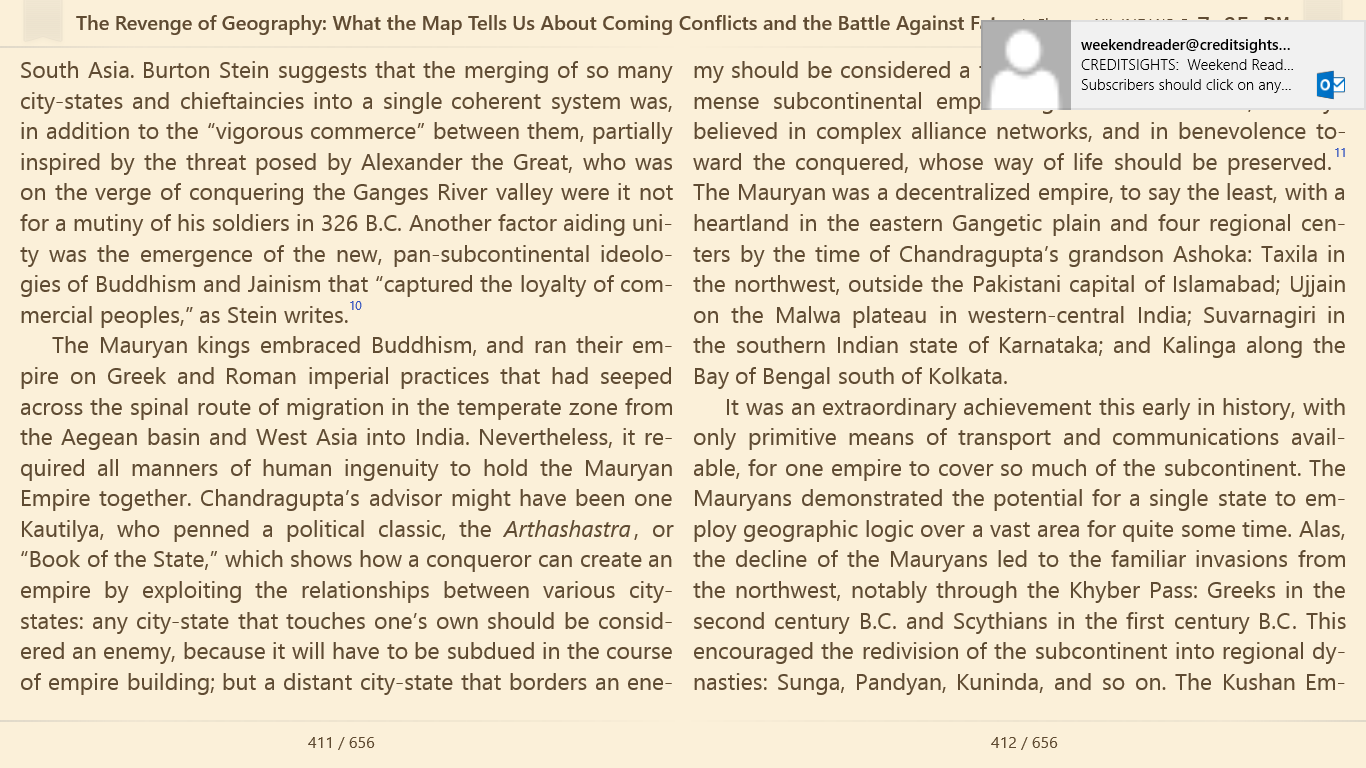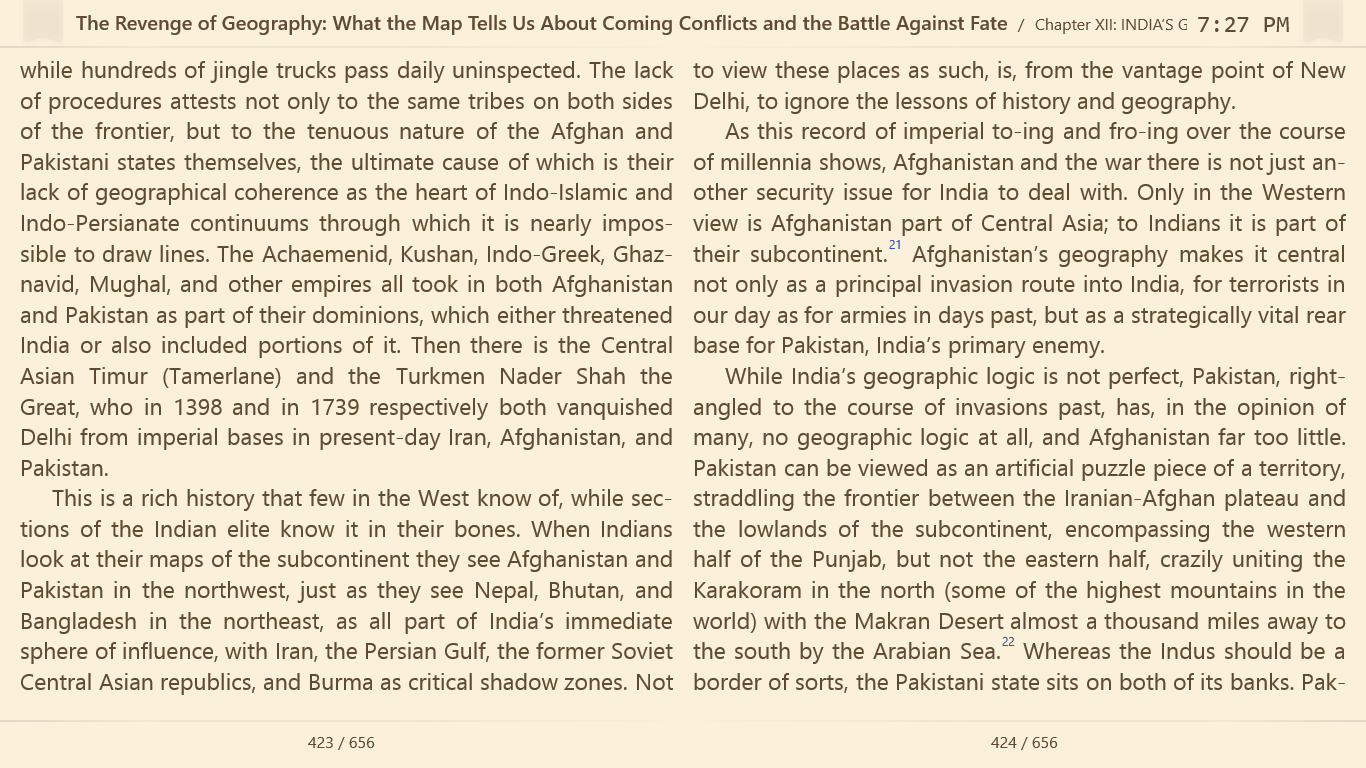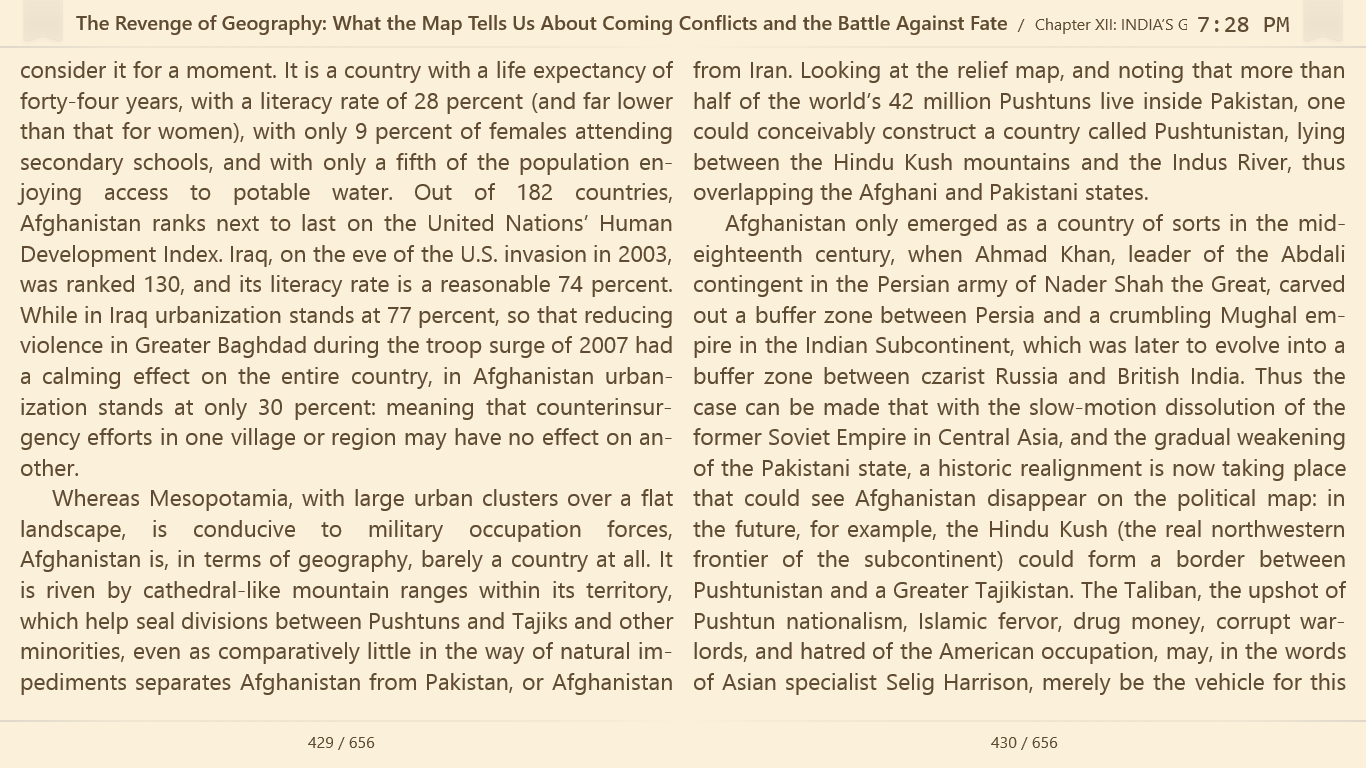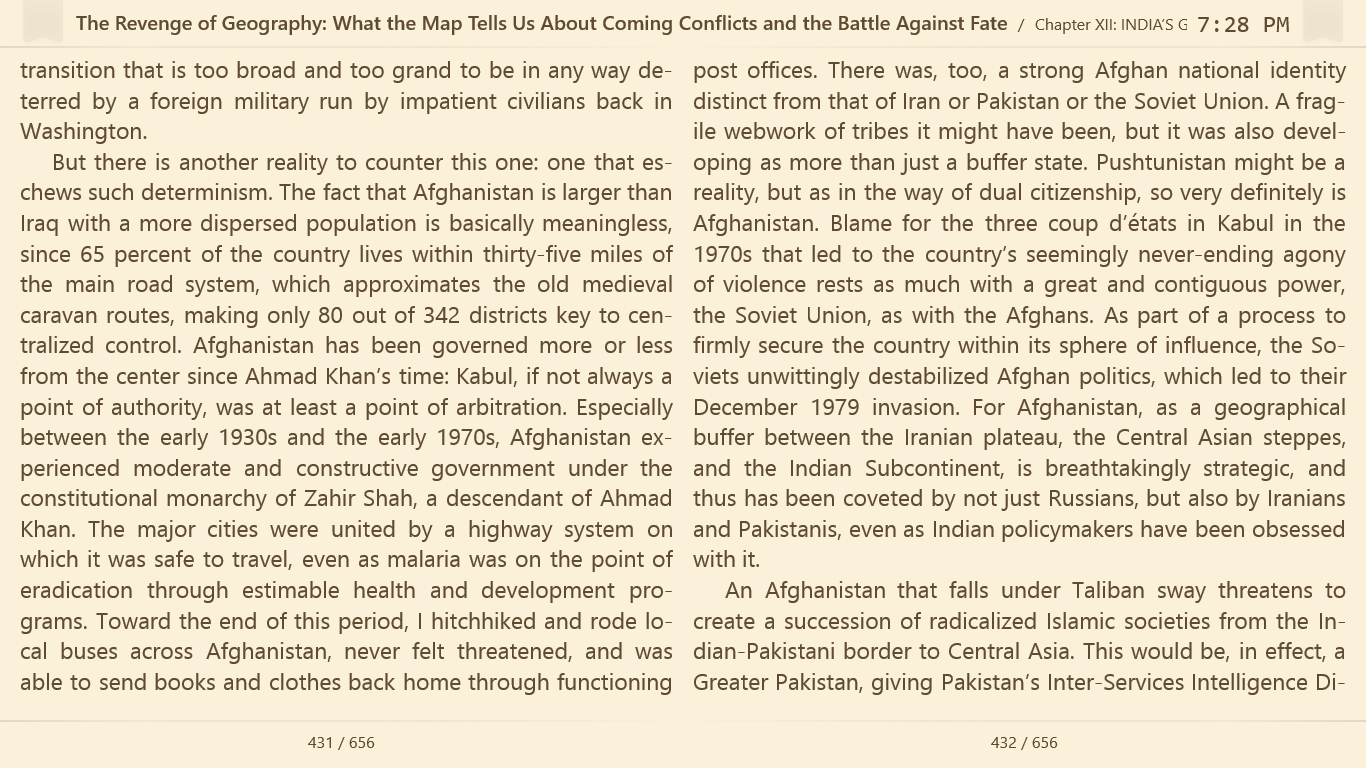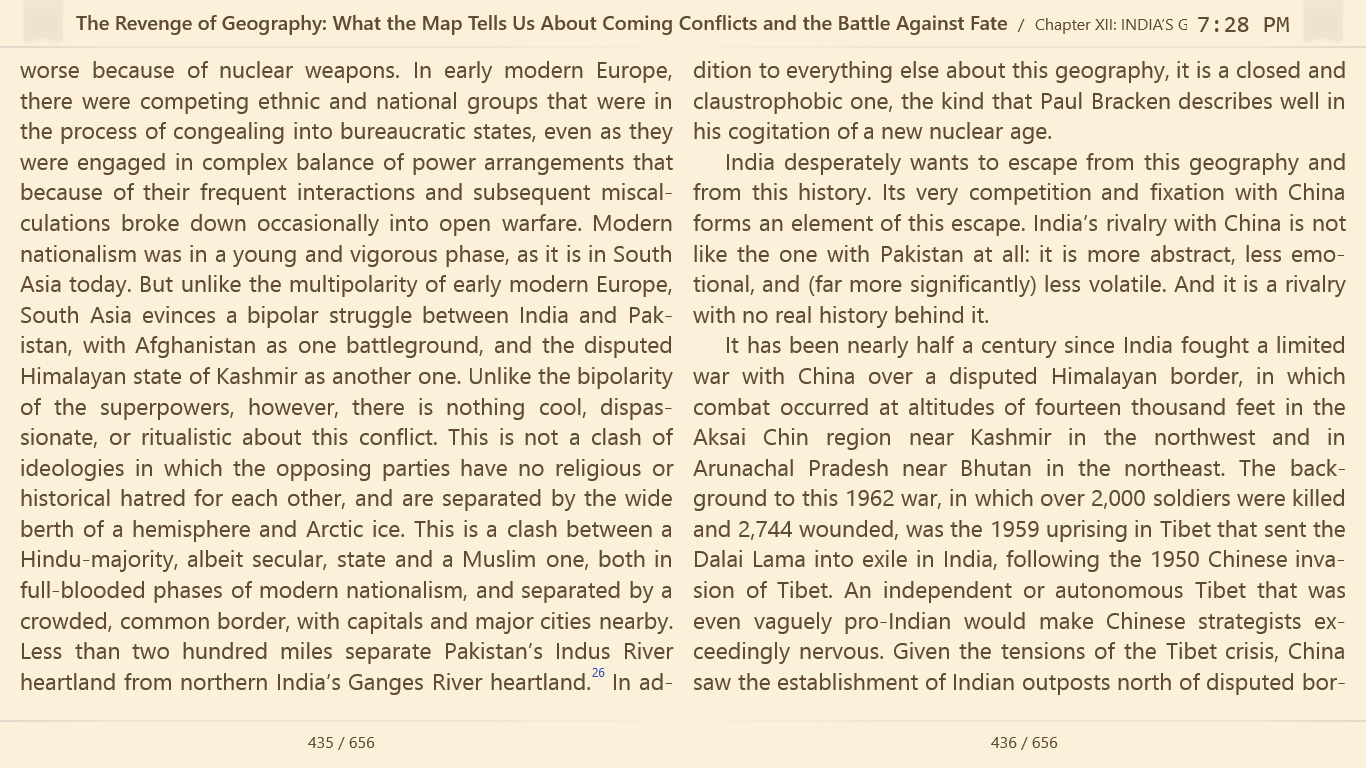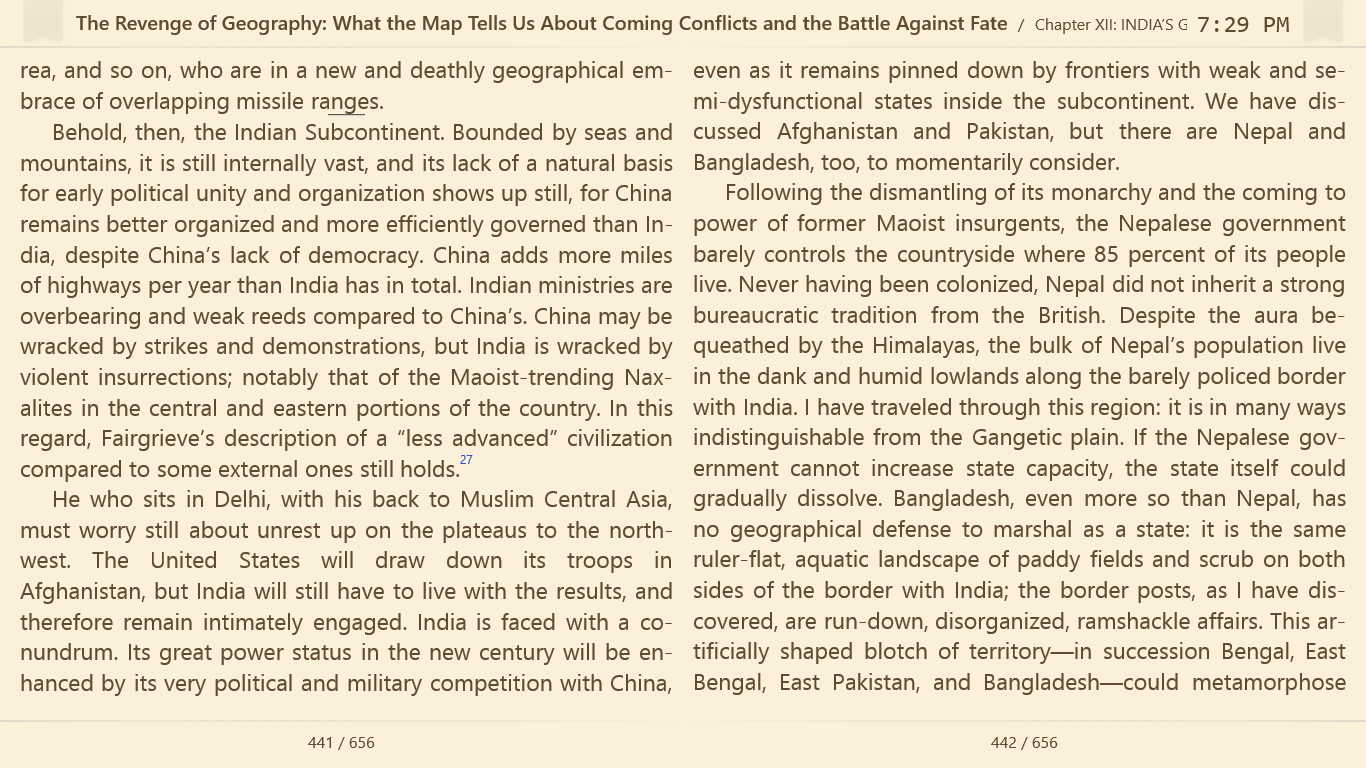I was rifling through Bangkok Airport (which is just amazing) on the long transits back to Africa and I saw George Friedman’s book, the Next 100 Years, which simply seemed fantastical (in one scenario Turkey, Japan & Germany wage war on the US, Poland & UK in 2050 after the collapse of Russia).
Anyway as I crossed over to the next bookshop close to my departure gate I saw The Revenge of Geography of Robert Kaplan.
Now Robert Kaplan (along with Huntington, Asimov and maybe Bernard Lewis) are huge intellectual influences on how I perceive the world. I became far more of a geographical determinist my Eureka moment happened what a decade ago when I chanced on this article by Robert Kaplan, Roman Africa.
To get to my main point when I was in South East Asia (and ironically Razib had a very good post up on Cambodian genetics at around the time I was in Cambodia) I realised that Hinduism and Buddhism have usually been having a fairly fratricidal relationship over the millennia. However the Hindu Right pays almost no attention to Buddhism but instead subsumes it into a brotherly Dharmic ethos even though Bhutan, Sri Lanka (which are admittedly more ethnic than religious conflicts) and even Pakistan in the deep past (apparently Bangladesh and Pakistan had strong Buddhist history before re-Hinduisation; correct me if I’m wrong).
Around the time I was pondering this though that why do India focus so much on Pakistan and Islam when frankly South East Asia and the Indian ocean is the grand prize. Furthermore India is almost an uncontested power (after all the historic name was Indo-China for the Asean region) but still seems bedevilled by playing power politics in Central Asia, Kashmir, Afghanistan & Pakistan.
Robert Kaplan almost perfectly answered my question as to the overwhelming strategic role Pakistan plays in India’s security. I had unfortunately forgotten my iphone so I would have scanned the whole chapter (it’s that good) so instead I’m going to excerpt from a few other pieces of Kaplan’s:
But the spirit of India has undergone an uneasy shift in this new era of rampant capitalism and of deadly ethnic and religious tensions, which arise partly as violent reactions against exactly the social homogenization that globalization engenders. Gujarat finds itself once again at the heart of what is roiling India, and what singularly menaces the country’s rise to “Great Global Power” status. India is home to 154 million Muslims, the third-largest Muslim population in the world after Indonesia and Pakistan. India has arguably more to lose from extremist Islam than any other country in the world. Yet, as Dwijendra Tripathi, a historian based in Gujarat, lamented to me, “The Hindu-Muslim divide here is worse than at any time since the partition.” Not coincidentally, this rift is deepening even as Gujarat booms economically, with brand-new malls, multi plexes, highways, and private ports transforming it into a pulsing region-state athwart Indian Ocean trade routes. http://www.theatlantic.com/magazine/archive/2009/04/indias-new-face/307332/
The greater Indian Ocean region encompasses the entire arc of Islam, from the Sahara Desert to the Indonesian archipelago. Although the Arabs and the Persians are known to Westerners primarily as desert peoples, they have also been great seafarers. In the Middle Ages, they sailed from Arabia to China; proselytizing along the way, they spread their faith through sea-based commerce. Today, the western reaches of the Indian Ocean include the tinderboxes of Somalia, Yemen, Iran, and Pakistan — constituting a network of dynamic trade as well as a network of global terrorism, piracy, and drug smuggling. Hundreds of millions of Muslims — the legacy of those medieval conversions — live along the Indian Ocean’s eastern edges, in India and Bangladesh, Malaysia and Indonesia. http://www.foreignaffairs.com/articles/64832/robert-d-kaplan/center-stage-for-the-21st-century
As the competition between India and China suggests, the Indian Ocean is where global struggles will play out in the twenty-first century. The old borders of the Cold War map are crumbling fast, and Asia is becoming a more integrated unit, from the Middle East to the Pacific. South Asia has been an indivisible part of the greater Islamic Middle East since the Middle Ages: it was the Muslim Ghaznavids of eastern Afghanistan who launched raids on India’s northwestern coast in the early eleventh century; Indian civilization itself is a fusion of the indigenous Hindu culture and the cultural imprint left by these invasions. Although it took the seaborne terrorist attacks in Mumbai last November for most Westerners to locate India inside the greater Middle East, the Indian Ocean’s entire coast has always constituted one vast interconnected expanse.
What is different now is the extent of these connections. On a maritime-centric map of southern Eurasia, artificial land divisions disappear; even landlocked Central Asia is related to the Indian Ocean. Natural gas from Turkmenistan may one day flow through Afghanistan, for example, en route to Pakistani and Indian cities and ports, one of several possible energy links between Central Asia and the Indian subcontinent. Both the Chinese port in Gwadar, Pakistan, and the Indian port in Chah Bahar, Iran, may eventually be connected to oil- and natural-gas-rich Azerbaijan, Kazakhstan, Turkmenistan, and other former Soviet republics. S. Frederick Starr, a Central Asia expert at the Johns Hopkins School of Advanced International Studies, said at a conference in Washington last year that access to the Indian Ocean “will help define Central Asian politics in the future.” Others have called ports in India and Pakistan “evacuation points” for Caspian Sea oil. The destinies of countries even 1,200 miles from the Indian Ocean are connected with it.
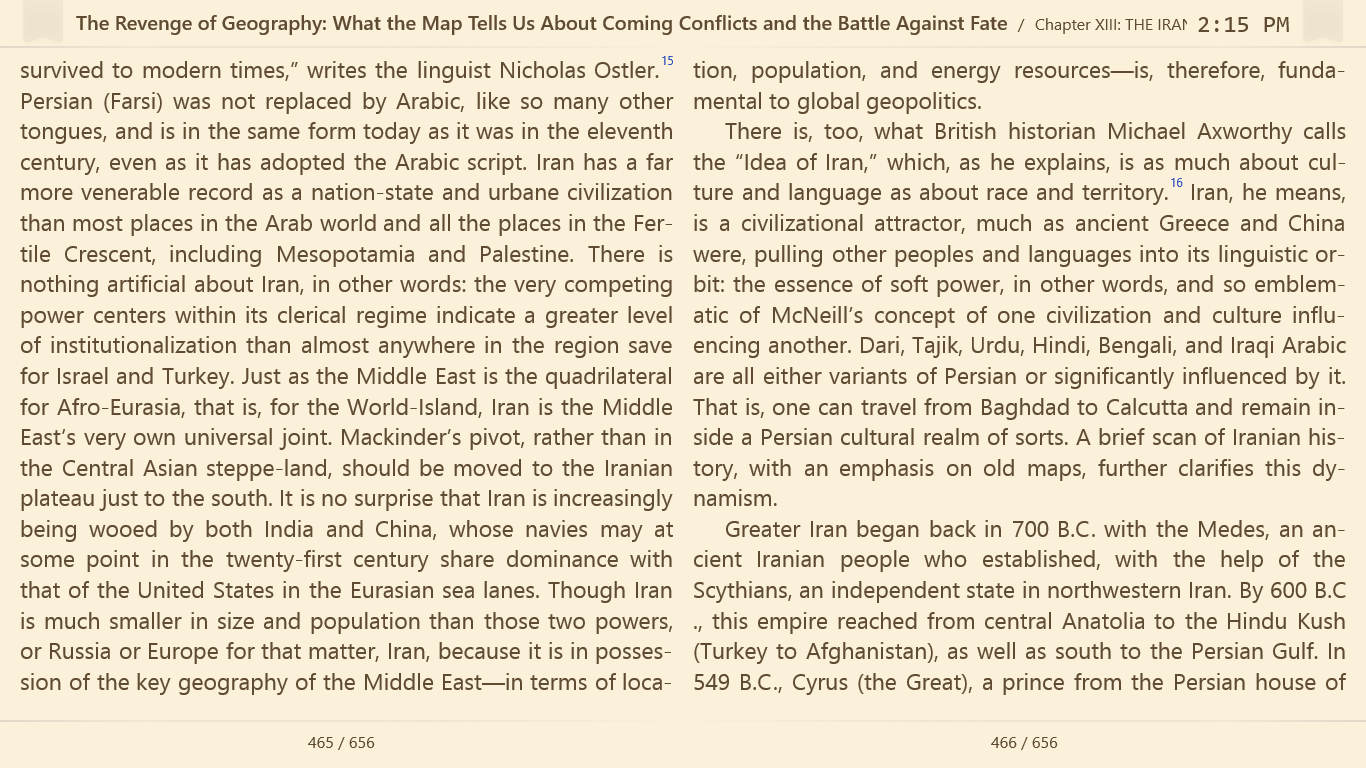.png)





